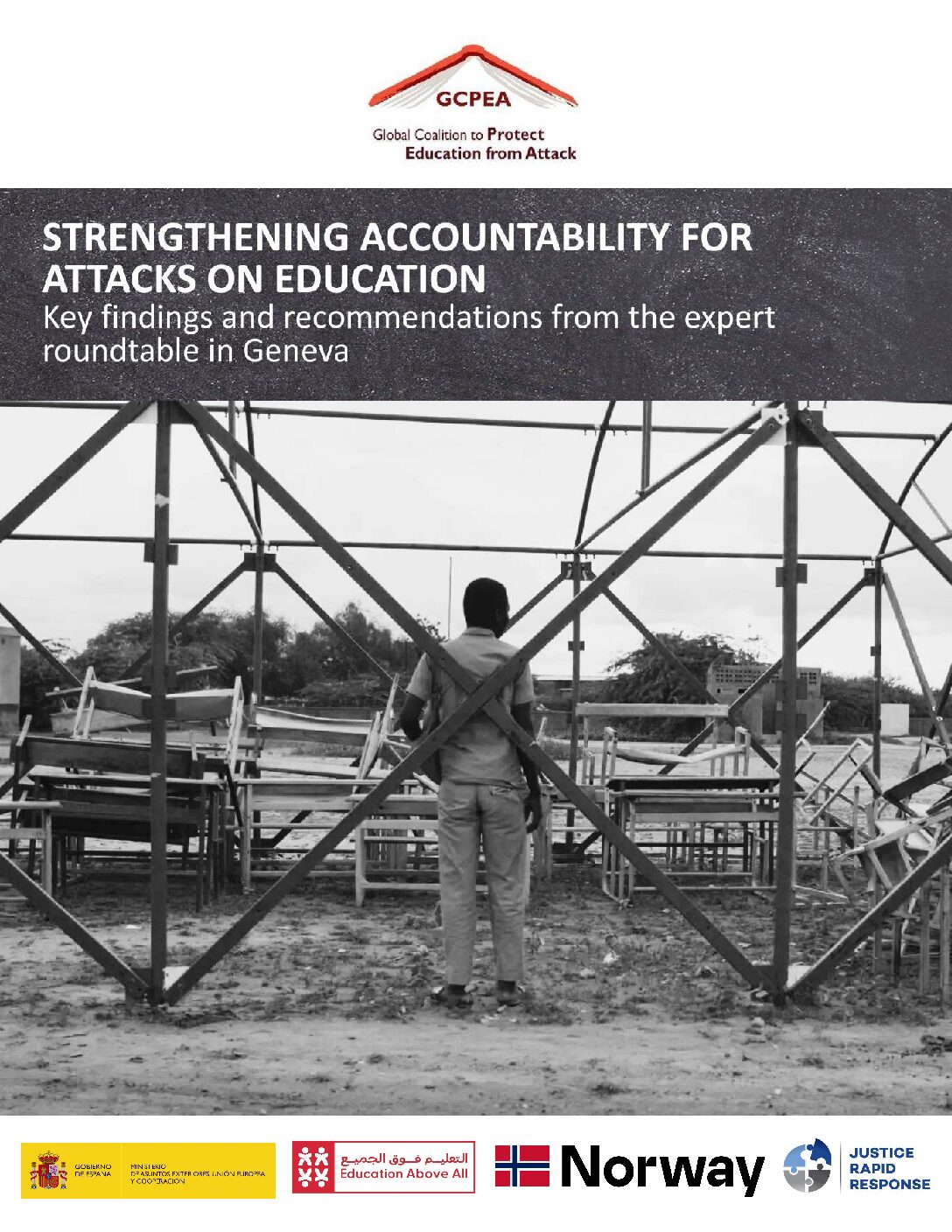GCPEA News
Australia’s UN security role a chance to defend children’s education
The Age, November 5, 2014
By Paul Ronalds, CEO of Save the Children Australia
Picture the scene: a perfect sunny Melbourne day in October. A classroom of giggly school kids are learning Australian geography.
Suddenly, a flash of blinding white followed by a thunderous boom. An explosive rocket has hit the classroom. Smokes rises to reveal utter destruction: desks splintered and smashed to smithereens, walls reduced to rubble, and shattered glass strewn across the floor.
Terrified students lie paralysed with fear amidst the chaos, many badly injured, some maimed, while the teacher lies unconscious at the front of the room. After a moment’s silence,the heart wrenching sound of children sobbing.
Shocking isn’t it? While this horror is unimaginable in Australia, it is the experience of children like Fatima caught up in conflict in places like Pakistan and Afghanistan, Gaza and Syria.
Fatima, 10, was at school in her Syrian hometown when the shelling started. “We were in class. My teachers and everyone all ran away, but I stayed. I was so scared. I stayed inside the classroom, but the shelling came towards me so I ran out. I was terrified when I saw what happened, right in front of me.”
“I used to feel safe,” she said, speaking from the refugee camp she now calls home in Lebanon. “I wasn’t scared, I didn’t feel this fear. We all used to go to school, no one would stay at home.”
Fatima’s story is not unique. A new report shows that globally, a shocking 8.7 million children have missed out on education as a result of some of the world’s worst humanitarian crises in the past year: conflict in Syria, Gaza and Iraq, Ebola in West Africa, malnutrition and conflict in South Sudan, and the largest typhoon to ever make landfall, in the Philippines.
Save the Children’s report, No Child Left Behind: Barriers to Education in the Asia Pacific region, identifies three major barriers keeping kids out of school: conflict, disaster and displacement.
Of these, conflict is responsible for the lion’s share of children’s lack of education in developing countries: a child living in a fragile or conflict-affected developing country is nearly three times as likely to be out of school as a child living in another developing nation. The Asia-Pacific region is no exception: half of all countries in Asia are affected by conflict, and two countries – Afghanistan and Pakistan – account for more attacks on education annually than almost anywhere else in the world.
In Australia’s second and final year on the UN Security Council, millions of children have had their chances of schooling dashed by conflict. So Australia’s final month as President of the Council in November presents a major opportunity for Australia to show international leadership in protecting children’s right to education: by preventing their schools from use by warring groups.
Schools used for military purposes during a conflict can lose their protected status under international law and become a legitimate military objective – meaning they can be attacked. Schools converted into barracks, military bases, detention facilities, centres for interrogation and torture, and weapons storage become acutely vulnerable to attack, robbing children of a safe place to learn and play.
But a new initiative called the Lucens Guidelines aims to assist those involved in planning and executing military operations to make appropriate decisions on the use and targeting of schools during conflict, helping reduce the very real risks to schoolchildren.
These Guidelines have been championed publicly by a number of countries – but despite our UN Ambassador’s expressed concern that more needs to be done to protect schoolchildren from attacks on schools – Australia has yet to declare its support.
The sheer number of attacks on education are shocking and should be enough to convince our leaders of the need for action. The past year has seen hundreds of attacks on education worldwide: 148 schools damaged or destroyed by conflict in Gaza; 78 attacks on schools, teachers and schoolchildren in Pakistan; at least 73 attacks on schools in Afghanistan; 300 schoolgirls kidnapped by Boko Haram in Nigeria. In Syria alone, at least 3465 schools have been destroyed or damaged over three and a half years of conflict.
Globally the need to put an end to these attacks has generated widespread support – from the likes of UN Chief Ban Ki-moon and former UK Prime Minister Gordon Brown to the inspirational education champion Malala Yousafzai, now the winner of a Nobel Peace Prize.
Australia must lend its voice also and help end attacks on education.
In two months Australia’s time on the UN Security Council ends. We campaigned hard to get on the UN’s top decision-making body. Now let’s use our seat on it to stand up for children’s education and publicly endorse the Lucens Guidelines so that children like Fatima never miss out on school because of conflict.



